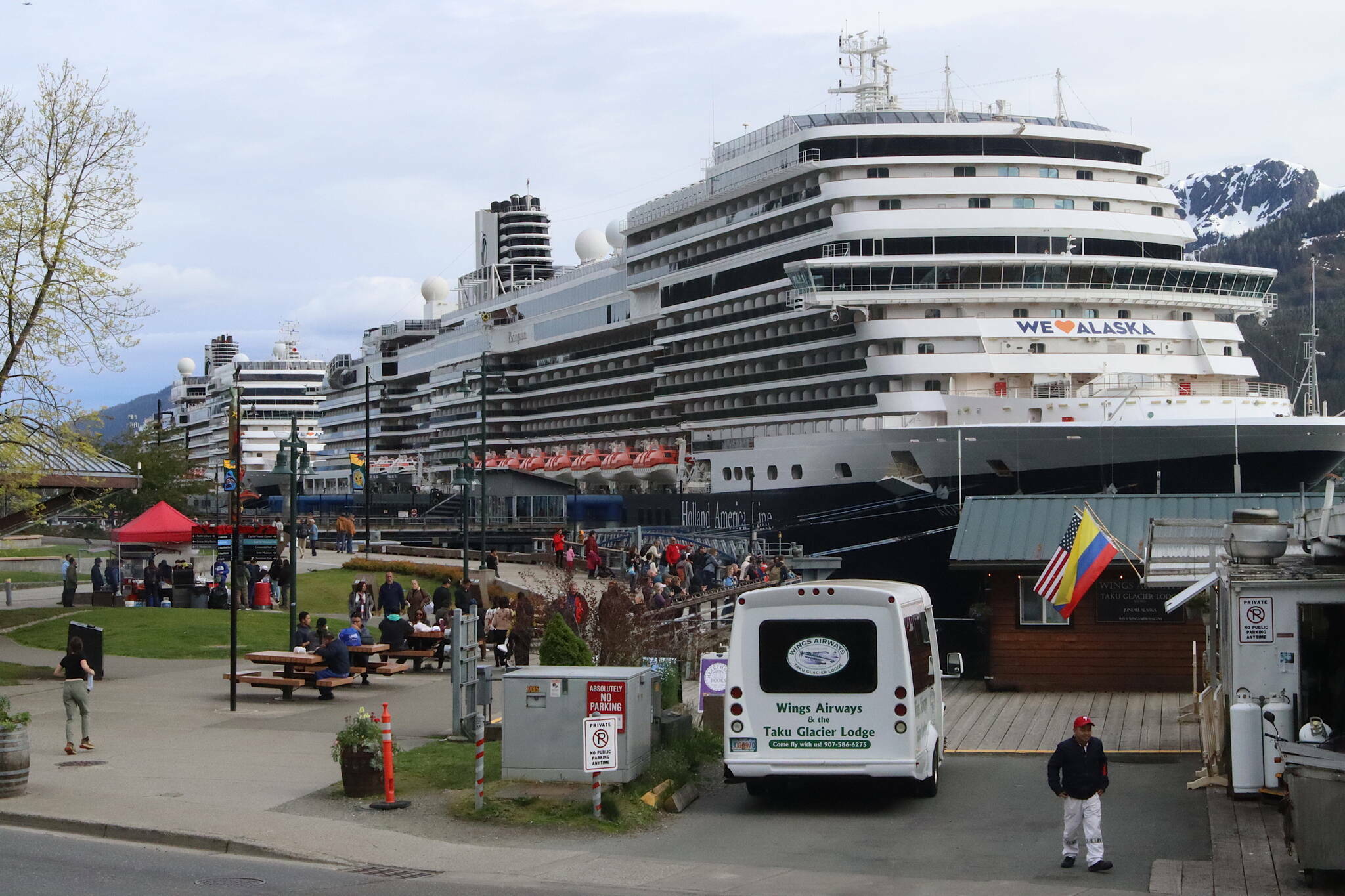Proposition 2 will damage Alaska tourism statewide. Vote no to keep this sustainable industry healthy
As the CEO of the Alaska Travel Industry Association, I’m proud to represent the thousands of small businesses, families and individuals who make up the backbone of Alaska’s tourism industry. From lodge owners in Denali to local tour operators in Haines, Alaskans have built an economy that thrives on sharing the beauty of our state with visitors from around the world.
But today, I’m writing with a sense of urgency regarding a measure on the Oct. 1 ballot in Juneau — Proposition 2 — which has the potential to threaten not just Juneau’s economy, but Alaska’s entire tourism industry.
While this vote may seem like a local issue, the implications spill far beyond Juneau’s borders. Proposition 2, which seeks to ban cruise ships from docking on Saturdays and on July 4, could set a dangerous precedent for Alaska’s reputation in the competitive global travel market. Tourism is a vital part of our state’s economy, bringing millions of dollars in spending and supporting countless local businesses in Southeast and beyond.
Normally ATIA supports individual communities determining their own local tourism development. It’s extremely rare for us to take a stand on a local ballot proposition. But Proposition 2 has raised such serious concerns about broader impacts throughout Alaska that ATIA made the unusual move of opposing it outright. We recognize the damage this measure could do — not just to tourism, but to the state economy.
If Proposition 2 passes it sends a message that Alaska tourism is “closed for business” — a place where guests are not welcome. At a time when the travel industry is competing fiercely for visitors this is not the message we should send.
Alaska has long been known as a welcoming destination with wide-open spaces and breathtaking beauty. We pride ourselves on offering visitors experiences they can’t find anywhere else. But we compete with other beautiful destinations — from Norway to New Zealand — where governments are investing heavily in tourism infrastructure and marketing.
If Alaska is perceived as unfriendly to visitors it becomes harder for us to attract travelers who fuel our small businesses and sustain local economies. The effects will be felt not just by cruise lines, but primarily by the “mom and pop” shops, restaurants, tour operators, and artisans who rely on the tourism industry to keep their doors open and support their families.
What’s especially frustrating about Proposition 2 is that Juneau has blazed a new path in responsibly managing visitor numbers. The City and Borough of Juneau has already signed landmark Memorandums of Agreement (MOAs) with the cruise industry which include concrete measures to cap growth and incorporate ongoing feedback from residents. These agreements have proven that collaborative solutions work—balancing the needs of residents with the economic benefits of tourism. Proposition 2, however, threatens to upend this progress. Instead of cooperation it will push stakeholders into conflict, which is never a good way to make decisions.
Forcing a choice between protecting the community and supporting tourism relies on a false premise. Juneau’s groundbreaking agreements show it’s possible to have both — a thriving tourism economy and a community with a voice in managing growth. But if Proposition 2 passes that balance will be disrupted, with consequences that reach far beyond one city and one industry.
We want to ensure that Alaska remains a world-class destination — one that welcomes visitors while preserving the qualities that make it special. Proposition 2 is not the way to achieve that. I urge Juneau residents to vote no on Proposition 2 — not just for Juneau’s future, but for Alaska’s. Let’s keep working together to find solutions that support local families, businesses and our state’s economic future.
• Jillian Simpson is the CEO of the Alaska Travel Industry Association.

